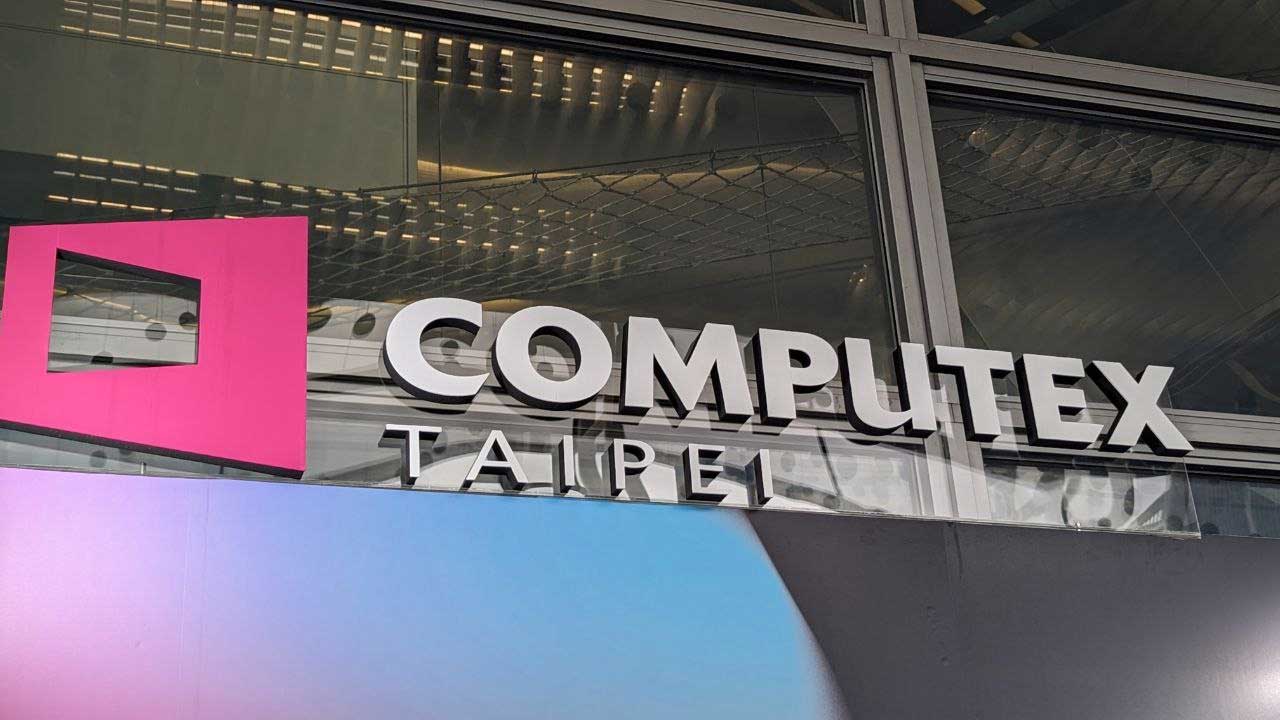Time for change in India’s smart wearable market
8 June 2023

In the first Computex since Taiwan's lockdown lifted, generative AI and related hardware took center stage. Gaming drew significant interest, while autonomous driving and mainstream PCs saw less attention.

Since the debut of ChatGPT in November 2022, generative AI has been at the forefront of technological discourse, as it takes strides toward ubiquity and commercial viability. Unsurprisingly, this trend took center stage at Computex 2023. During the inaugural keynote, Nvidia rolled out an array of technologies dedicated to accelerating computing and harnessing the power of generative AI, shaping the primary narrative of the event.
Echoing this focus, leading server ODMs, such as Supermicro, Gigabyte, Quanta and Wiwynn, unveiled collaborations with Nvidia through their respective GPU server models. This highlights the industry’s pivot toward AI, as a recent Canalys survey indicates that over 40% of channel partners are optimistic about AI’s prospects for their own business.
But the immense computational power required by AI systems inevitably raises concerns about high energy consumption and thermal issues. As such, industry players are intensely focused on devising effective cooling methods and reducing power use, aligning with broader goals of sustainability and carbon footprint reduction. Manufacturing companies are actively exploring water cooling and immersion solutions, presenting innovative strategies to handle the challenges at hand.
Future industry steps revolve around finding an ideal blend of air, water and liquid cooling solutions, striking an optimal balance between cost, energy consumption and performance. This will become a vital consideration for IT channels and data centers as they pave the way for the next era of technological advancements.
Despite the focus on AI and server technology, Computex 2023 did maintain some of its traditions as a consumer device showcase. As usual, gaming generated much excitement, with vendors such as Asus, Acer, MSI and Gigabyte showing new premium models and expansive displays. The presence of numerous gaming peripheral vendors further transformed the exhibition into a spectacular showcase. Overall consumer PC demand has waned in the last few quarters, and Canalys does not expect a return to growth until Q4 2023. But demand for gaming devices and accessories is relatively stronger and delivers value through higher ASPs and quicker refresh rates. In terms of eye-catching launches, MSI invigorated the e-sports market by launching its co-branded Stealth 16 in partnership with Mercedes-AMG, while Acer highlighted its latest gaming desktop, the compact yet high-performance Orion X.
Asus, on the other hand, focused on its handheld gaming device, the ROG Ally, which launched in April 2023. Equipped with Windows 11, the ROG Ally supports a variety of gaming platforms to cater to diverse gamer preferences, including Steam, Xbox and Origins. Notably, it’s compatible with Asus’ long-established XG Mobile product line and houses an Nvidia RTX 4090, allowing it to handle high-demand games, creating an experience akin to current gaming PCs. Capitalizing on these strengths, Asus aims for a broad consumer reach, setting an ambitious sales target of over a million units for this year.
At this year’s event, non-gaming PCs took a backseat. Dell, HP and Lenovo were conspicuously absent, allowing Taiwanese vendors Asus and Acer to highlight their sustainability offerings and commercial products. Both the Acer Aspire Vero 15 and Asus Zenbook S 13 launches emphasized the use of recycled materials and the reduction of CO2 emissions during production. Asus also broke new ground by unveiling Zenbook and ExpertBook models equipped with OLED screens to provide a much-improved viewing experience for commercial customers and creators.
Neither Intel nor AMD held standalone keynotes or launched new products at Computex. In contrast, Qualcomm stood out with a keynote that unveiled its collaboration with Microsoft. Their shared vision focuses on the future of on-device AI, aiming to significantly elevate the user experience for the Windows-on-ARM model. Canalys expects that ARM-based PCs will gain significant traction over the next few years, expanding beyond the gains created by Apple since its move to M-series devices.
But there has been little news since Qualcomm’s Q4 2021 introduction of the Snapdragon 8cx Gen 3. Given that sophisticated AI functions demand robust processing power, a product line refresh is overdue. Canalys anticipates the imminent release of Qualcomm’s 8cx Gen 4, which could become one of the most advanced process node PC CPUs. Such a launch will help facilitate more Windows-on-Qualcomm devices from the major PC vendors, further growing the ARM-based CPU market share.
The rise of generative AI has brought renewed attention to Microsoft, which has been an early mover in integrating such solutions into its products. There are some industry expectations around a new-generation operating system, likely dubbed Windows 12, debuting in 2024. Canalys expects that significant enhancements in AI capabilities for Windows and Office 365 could further invigorate PC sales in 2025, especially as the phase-out of support for Windows 10 drives businesses to refresh their devices. This evolution would help drive a return to the limelight for PCs at Computex 2024 and give a much-needed boost to the market recovery.
Marking a triumphant return after a three-year hiatus, this was the first physical Computex since Taiwan lifted its entry restrictions in November 2022. This year’s event, fueled by the compelling narrative of generative AI and the pent-up anticipation of international businesses, saw a surge in enthusiasm. The Taiwan External Trade Development Council reported visitor numbers of over 47,000, an encouraging 12% up on 2019. The revival of in-person interactions is a key outcome of Computex 2023 and highlights the tech industry’s resiliency in the face of global changes.